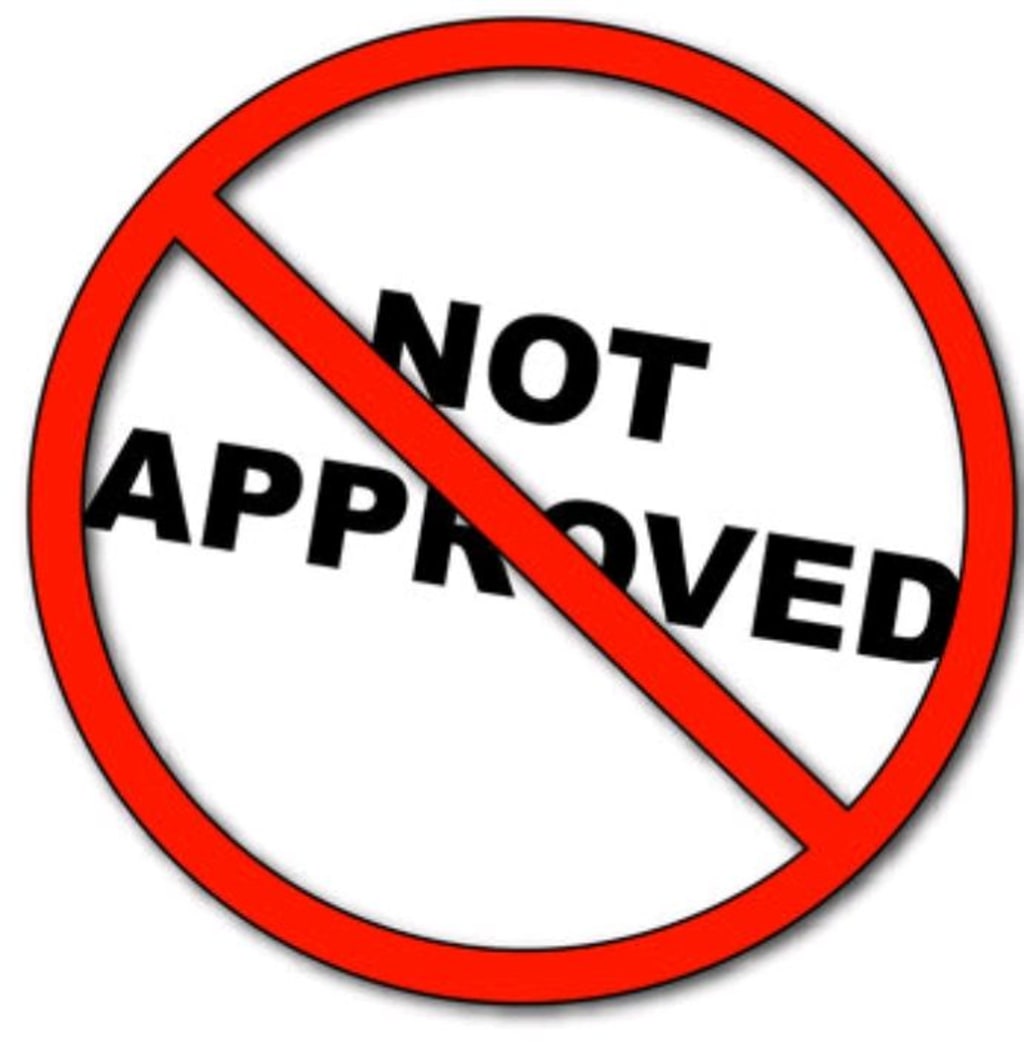THINGS YOU MUST NOT SAY IN AN INTERVIEW
Learn and get used to it for safe interview

Am here with Job Interview Tools.
Never Say These 5 Things Transcription Also, I'd like to talk to you about things you shouldn't say in a job interview today;
In particular, five things that you shouldn't express, raise, notice in any capacity whatsoever in a prospective employee meeting.
Assuming you do, it's nearly a goal for moment exclusion from the interaction. In this way, the principal thing;
1. Try not to discuss your organization. Talk positively about the people. Try not to say that you could have done without working there; regardless of how it arises. All in all, perhaps you loathed working there, perhaps you despised your chief, yet when they asked you inquiries, Did you like working there? Did you like your supervisor? The response is "Yes" I did. I enjoyed working for my chief. The people pleased me. I enjoyed the organization. I liked the way of life. I loved every little thing about them. It's a disgrace that I need to leave. I regret having to leave, but I'm looking for better opportunities and greener pastures. I want to be given more responsibility. Express any of that with the exception of that you could have done without working there, you could have done without what they did or any such thing. Since, in such a case that you could have done without working there or you could have done without your chief, it'll be in a matter of seconds that you'll express exactly the same things about them when they employ you; you'll find motivations not to like them, you'll find motivations not to like your chief. That is only the manner in which it goes; individuals who could do without where they worked at, it doesn't take them long dislike the new spot. That is simply the way things are; that is human instinct. In this way, you would rather not impart that to them in the meeting; even if they ask you, "How do you like that company?" no matter how it comes out. You should know that I no longer enjoy working there. No, you like working there and you like individuals. In any other way, you'll get named as a disease. When you go about talking smack about all of the people or the company, the policies, or the things you don't like, you get called cancerous. Also, organizations dispose of individuals like that. Presently, I know that is not you. You know why? Because you are watching me today and attempting to improve yourself, I know that is not you. Additionally, individuals who are attempting to improve themselves are not cancerous. I mean, sure, there might be something about their company that they didn't like, and they might have a very good reason for it. Simply avoid saying that during the interview; try also that in any capacity whatsoever. Okay. Thus, the following one here; number two:
2. A ton of up-and-comers go in and they're so frantic to work at a specific job they'll say, I'll do anything. Whatever it is, it does not matter; I'll do anything. Presently, these are normally individuals who are not utilized at this moment (perhaps they've been unemployed for six to nine months, perhaps two years) and they are frantic for a task and they will do anything. Yet, on the off chance that you go into a new employee screening and say, You know what? It doesn't matter at all to me what it is; I'll do it. I'll do anything. Please hand it to me. As a result, when you do this, you show a certain amount of despair that doesn't come across very well. You want to go into the interview talking about what you can do, what you can add, and how excited you are to do it; you need that. You would rather not simply say, Yeah, I'll do anything that you got. I'll do it. I'll clear the floors. I'm unconcerned. Now you want to go specifically there; explain to them what you intend to do. You must adhere to your values. You must stick to what you believe and what you want to do. Since, supposing that they simply give you anything, on the off chance that they give you any sort of occupation there, in two months, you won't be blissful getting it done. I promise you. Employers are aware of this. They are aware that if you went in and said, "I'll take whatever you got and give it to you," you would be thinking, "You know what? This sucks. You will leave if I continue to do this. Also, you'll leave them helpless. They will then have to go interview someone else, wasting a lot of time, which will cost them a lot of money to deal with bad hires like you. Thus, when you go in there, don't let them know that you'll simply do anything or you'll take anything. It simply communicates something specific of distress. Okay, how about we continue on toward number
3. 3. Anyway, when they ask you, Tell me about yourself or What are a portion of the things that you're great at? Don't tell them that you are a self-starter, that you learn quickly, or that you are focused on getting results; anything of that kind. Now, you want to explain how you can accomplish those things; you need to place it in a setting. Thus, in the event that this resembles an administration position, you would rather not say, I'm an extraordinary pioneer. You need to discuss how you have driven individuals. You need to discuss gatherings; the teams you've put together to work on particular projects. You need to discuss how you've gotten it done. You would rather not simply say that your results are arranged. You need to discuss projects that you finished and you wrapped up according to schedule and under financial plan and you need to discuss the subtleties. Every one of the outcomes situated and the authority will turn out with regards to what you're talking about. Is that understandable? Thus, don't go in there and simply say, I'm an outcomes-oriented pioneer. Put it in a setting for themselves and show them how you have done this previously and afterward the basic message will be, Hey, this person you know, they're very great outcomes arranged pioneer. When it's all said and done, that is a mark that you get placed on sometime later. Okay, check out? In this way, go in there and simply let them know how you have gotten things done, not how you would do them. Okay, let's move on to the next one in this room.
4. When someone asks you something like, "Do you know how to do this?" Don't say that you don't know how to help them. Share with no questionnaire that I don't have the foggiest idea how to do that or I've never seen that or I can't really understand. Well, that is the absolute worst point you can make; even if it is accurate. However, what you really want to say is, Allow me to ponder that for a second and afterward you think. Furthermore, what you believe you should do is you need to interface it to something like what you've done. You then respond, "You know what? I haven't done that careful thing, however I've accomplished something comparative. Also, what that does is that shows them that you basically have some degree of comprehension of what they're referring to. Since, in such a case that you show no amount of figuring out about the inquiry, that is a major warning; a major detriment for you. What's more, it's probably going to be a skill question. What's more, on the off chance that you have significant insight into capability questions, those are weighted the heaviest. Thus, assuming that you miss a couple of capability questions; that may be the case. That could end the interview for you right there. You should be possible; there are only two competency tests. One, perhaps you can pull it off, yet it depends. It depends how significant the inquiry is. because competency questions incorporate a large number of fundamentals. Furthermore, on the off chance that you don't have the foggiest idea about a ton of basics about what you do, that says that you have hardly any insight into what you do. Along these lines, never let them know that you don't have any idea. Continuously attempt to verge on something; come to an obvious conclusion for them. Also, perhaps you want to pull help here and say, You know what? They'll respond, "Yes," if I can think about that for a moment and if we can circle back around. Yet, assuming you pull that help procedure too often, as perhaps at least a few times or two times, that is all there is to it; you're finished. Therefore, you need to give yourself some time to consider how you can relate your experiences to what they are discussing, and I am confident that you can. Okay, let's move on to the final one;
5. When you go into the meeting, don't ask them, So, what does your organization do here? The worst thing you can do is that. That shows that you did positively no exploration, no arrangement on this organization, this division, the Office or the tasks they're chipping away at or anything. Try not to ask them what they do here. You ought to definitely know that regardless, get some information about a portion of the things that they are doing. However, don't go in there dazed and simply say, Well, what do you folks do around here? That seems fascinating. I might like to do that, I think. That is the worst thing you could possibly say. That shows that you have no amount of energy about this organization or about the thing they're doing. It shows that you put no readiness into the meeting. You didn't look into this company or the job at all. It basically states that you showed up and might like the position. It doesn't work that way. Out there, things don't work that way. There are so many hungry work searchers out there who need these positions and they will beat you over ten times. They will be so much more sharp than you. They will be on their game. They will discuss their experiences and how they relate to the position. They will be aware of that business's operations. They will be aware; they will have found it and you can as well. In this way, make that additional stride before your next new employee screening and invest some energy exploring the position. Accumulate as much data as possible so you can go in there and presently you can ask them inquiries that will assist with qualifying you about this work, and about this organization, and to be. At the end of the day, looking at this logically, that is truly the very thing that a prospective employee meeting is. You are out there conversing with them and you're talking with them as well. You are interviewing them to determine whether this is something you would like to do. That is the entire key to a successful job interview. Okay, my friend; best of luck on your next interview. Presently before you go in your next interview, I would unequivocally propose snatching a duplicate of The Total Meeting Answer Guide from New employee screening Devices. The quick download was this. You can get it in a PDF digital book, you can get it in mp3, video, sound or you could get a printed copy. There are approximately 140 distinct interview questions and answers in this book. It explains the STAR method and behavioral questions in detail; where they need to utilize what is going on, the assignment, the activity, and result. There are approximately forty questions here that merely explain that. I show you how to respond to the questions, "Tell me about yourself," "Why do you want to work here?" Why did you quit your previous job? This guide will walk you through getting 100% arranged for any prospective employee meeting. Therefore, I highly recommend it. It's roughly $50. It is available on jobinterviewtools.com. Also, assuming that you like it, there's a sound adaptation. You can download all the soundtracks. You can put them on your telephone and you can pay attention to them. You are able to listen to the questions as you drive to work, and some people even listen to them in the parking lot. In an interview, they will arrive an hour early and simply listen to the questions before entering the room. Thus, it only sort of places you in a more uplifted express, a more raised express, a more siphoned up, empowered state before the prospective employee meeting. Along these lines, snatch this book; it's great, it's a great book. It will greatly assist you. It's been around more than 10 years. I keep it refreshed constantly. Furthermore, this guide has something that no other guide does: You can purchase books from Amazon, where you can find questions and answers, but this guide also includes my assistance. In this way, on the off chance that you stall out or you have an inquiry concerning something in the new employee screening process, you can email me and I will really answer; not a college student or anyone else in this area; I get it. You have me; Your coach is me. As a result, when you own this guide, I am your coach. You can contact me directly by email, and I typically respond within a day or two. That is unheard of. I don't know any other individual in the world that will actually no other writer will let you email them inquiries regarding their book for help; I can assure you. Check out Amazon; there's many books out there and they all have questions and answers and not one of those individuals puts their email address in their aid so you can email them for help. I do in light of the fact that I need to be hanging around for you. I wish to assist you. I need to assist you with succeeding. Okay, best of luck. See you in the next video and best of luck with your next interview.
Elijah.






Comments (1)
You are doing good bro